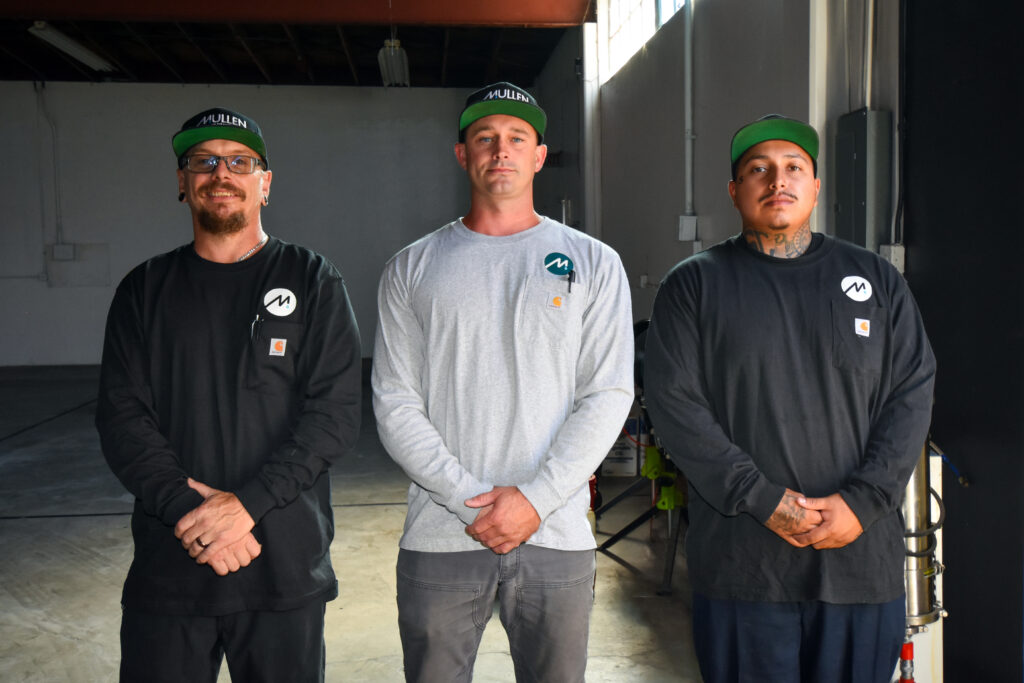Even though Long Beach enjoys mild winters compared to other regions, homeowners can still face plumbing challenges. Coastal weather, occasional cold snaps, and increased rainfall can cause leaks, low water pressure, and even minor freezing in exposed pipes. Proper winter preparation is essential to prevent costly repairs, ensure home comfort, and protect your plumbing system.
At Mullen Plumbing, we’ve seen how proactive steps during mild winters prevent major plumbing emergencies. This guide provides detailed advice and actionable tips to help Long Beach residents protect their plumbing from winter-related issues.
Why Winter Affects Plumbing in Long Beach
While Long Beach rarely experiences extreme cold, several factors make plumbing vulnerable during winter:
- Mild Cold Snaps: Even brief periods of near-freezing temperatures can stress exposed pipes, particularly those in garages, crawl spaces, or attics. Water expands when frozen, and repeated temperature fluctuations can weaken pipes over time.
- Marine Air & Coastal Humidity: Long Beach’s proximity to the ocean means salt-laden moisture in the air can accelerate corrosion in older pipes, faucets, and water heaters. Corroded pipes are more likely to leak or burst during winter.
- Increased Rainfall: Winter storms can lead to minor flooding, water infiltration, and higher moisture in basements and crawl spaces, putting additional strain on plumbing systems.
- Temperature Fluctuations: Long Beach weather may alternate between mild days and chilly nights, causing pipes and fittings to expand and contract, which can create leaks in older plumbing.
Understanding these risks is the first step toward winter readiness and protecting your home’s plumbing system.
Signs Your Plumbing Needs Winter Preparation
Before implementing preventive measures, it’s important to recognize warning signs that your plumbing might be vulnerable:
- Dripping or Leaking Faucets: Even small leaks can worsen in cold weather and cause damage over time.
- Low Water Pressure: A sudden drop in pressure may indicate partially frozen pipes or blockages that need attention.
- Corroded Pipes or Fittings: Older galvanized or metal pipes may be more susceptible to leaks and bursts in winter.
- Strange Noises: Banging, rattling, or gurgling sounds in your pipes could indicate loose fittings or air in the system, which may worsen during colder months.
- Water Heater Issues: If your water heater struggles to maintain temperature or shows signs of rust, it may fail under the extra winter demand.
If any of these signs are present, Mullen Plumbing can perform an inspection to ensure your system is winter-ready.
Essential Steps to Prepare Your Long Beach Plumbing
1. Insulate Vulnerable Pipes
Exposed pipes are the most susceptible to winter damage, even in mild climates like Long Beach. Proper insulation prevents freezing and stress-related leaks:
- Exposed Pipes Protection: Wrap pipes in basements, garages, and attics with foam insulation sleeves to reduce the risk of freezing during cold snaps. Pipes in exterior walls should receive extra attention.
- Seal Entry Points: Check for gaps around doors, windows, and vents where cold air can infiltrate and affect indoor plumbing. Use caulk, weatherstripping, or spray foam to seal openings.
- Coastal Considerations: Salt-laden air can accelerate corrosion. Choose insulation materials resistant to moisture and salt exposure to extend the life of your pipes.
2. Maintain a Consistent Indoor Temperature
Keeping your home at a steady temperature reduces stress on pipes and prevents freezing in unheated areas:
- Set Minimum Heat: Maintain indoor temperatures at 55°F or higher during winter nights, even when you are away. This keeps water in pipes from freezing.
- Cabinet Door Strategy: Open under-sink cabinets in exterior walls to allow warm air from the home to circulate around the plumbing.
- Smart Thermostats: Programmable thermostats help maintain consistent heat throughout the house, preventing sudden cold spots that could damage pipes.
3. Drain and Protect Outdoor Water Fixtures
Outdoor faucets, sprinklers, and hoses are particularly vulnerable in winter:
- Disconnect Hoses: Remove garden hoses to prevent trapped water from freezing and damaging outdoor faucets.
- Sprinkler System Drainage: Drain irrigation lines and shut off water to prevent pipe cracks and leaks caused by cold nights.
- Frost-Free Faucets: Installing frost-resistant outdoor faucets can reduce the risk of damage and save time on winter maintenance.
4. Inspect and Service Water Heaters
Water heaters are often overlooked but can be stressed during winter when demand for hot water increases:
- Flush Sediment: Over time, sediment collects in the tank, reducing efficiency and increasing wear on the system. Flushing it before winter improves performance.
- Temperature Settings: Set the heater to 120°F to provide sufficient hot water while avoiding excessive energy use or scalding risk.
- Check for Leaks: Inspect tanks, valves, and surrounding pipes for early signs of corrosion or leaks. Corrosion is more common in coastal climates and can worsen during winter.
5. Monitor Pipes and Valves Regularly
Preventive maintenance is key to catching small issues before they become emergencies:
- Detect Early Issues: Look for dripping faucets, slow drains, or minor leaks regularly, especially before and during the winter season.
- Replace Old Pipes: Consider replacing outdated galvanized or iron pipes with modern PEX or PVC piping, which is more flexible and resistant to stress.
- Valve Maintenance: Test shutoff valves to ensure they operate properly in case of leaks or emergencies.
6. Keep Water Flowing During Cold Nights
Even in Long Beach, occasional cold nights can cause localized freezing:
- Faucet Drip Method: Allow faucets to drip slightly overnight to maintain water movement in vulnerable pipes.
- Open Cabinet Doors: Ensure warm indoor air reaches pipes located along exterior walls or under sinks.
- Circulate Water: Running seldom-used taps occasionally helps maintain pressure and prevent small sections of pipe from freezing.
Tools and Products That Help Prevent Cold-Weather Plumbing Issues
- Pipe Insulation Foam: Provides a protective barrier around pipes in garages and crawl spaces.
- Heating Tape: Electrically warms pipes in areas prone to freezing during cold snaps.
- Smart Leak Detectors: Alerts homeowners to leaks in real time, helping prevent water damage and expensive repairs.
- Thermostatic Valves: Maintains steady water flow in exposed pipes, reducing the risk of freeze-related bursts.
Common Mistakes Long Beach Homeowners Make
- Ignoring Minor Leaks: Small drips can worsen during winter and lead to major repairs if not addressed promptly.
- Leaving Hoses Connected: Trapped water in outdoor faucets can freeze and cause pipe damage even during mild cold spells.
- Turning Off Heating Completely: Homes left unheated during vacations may experience pipe damage in uninsulated areas.
- Skipping Pipe and Water Heater Inspections: Regular professional inspections help identify issues before they escalate into emergencies.
FAQ: Winter Plumbing Preparedness in Long Beach
Q1: Do I need to worry about frozen pipes in Long Beach?
A1: While freezing is rare, exposed pipes in garages, crawl spaces, and attics can still be affected during cold snaps. Proper insulation and preventive measures are recommended. Mullen Plumbing can help assess your home and protect vulnerable areas.
Q2: How can I protect outdoor faucets and sprinklers?
A2: Disconnect hoses, drain irrigation systems, and consider frost-free faucets. Adding faucet insulation can further protect outdoor plumbing.
Q3: What water heater maintenance should I do before winter?
A3: Flush sediment, inspect for leaks, and maintain a 120°F setting to ensure reliable hot water supply during cooler months.
Q4: Should I let faucets drip during cold nights?
A4: Yes. Allowing a slow drip keeps water moving in pipes, reducing the risk of freezing or low-pressure issues.
Q5: Can coastal humidity affect my plumbing in winter?
A5: Yes. Moisture and salt-laden air can accelerate corrosion in pipes, valves, and water heaters. Regular inspections and corrosion-resistant materials are essential.
Conclusion
Even in Long Beach’s mild winter climate, proper winter readiness is essential to prevent cold-related plumbing issues. From insulating pipes and maintaining water heaters to regular inspections and smart winter habits, these steps protect your home, reduce repair costs, and ensure reliable plumbing throughout the season.


